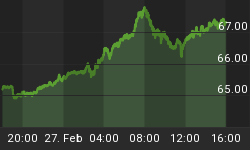
Special Guest: Jörg Guido Hülsmann, is a professor of economics at the University of Angers in France and adherent of the Austrian School. He has edited six books and is the author of The Ethics of Money Production and Mises: The Last Knight of Liberalism. He has translated several renowned economics books into German and written many articles in English, French, and German. He is a contributor to scholarly journals such as the Quarterly Journal of Austrian Economics, The Independent Review, Procesos de Mercado, and the Journal of Markets and Morality, as well as to magazines and newspapers such as La Tribune (France), Finanz und Wirtschaft (Switzerland), Le Temps(Switzerland), Wiener Zeitung (Austria), and eigentümlich frei (Germany).
Professor Hülsmann is the director of the Austrian Research Seminar in Paris.
Financial Repression
"Financial Repression is the name we give to all the different government interventions in which governments seek to improve their own bargaining position with financial markets."
"As a consequence of Financial Repression (that is of government intervention) people use their savings differently than they would otherwise have used. Therefore different people benefit from those savings (most probably the government itself) to a greater extent than otherwise would have been the case."
Financial Regulation
"The most surprising developments have been regulation, like the Dodd-Frank Act, Basel III, FATCA. They are pretty intrusive. These regulations have been sold to the public as necessary to control the financial markets, which is certainly the case but this is one side, the other is precisely the cause. Governments control the markets and can force Insurance Companies, Banks, Investment Trusts to use their funds in a certain way that governments are then ready to benefit from. This is very often at the expense of the savers."
Expected Trends
INCREASED REGULATIONS
The amount of paperwork and red tape that will be required to comply with expanding regulations is already growing dramatically. "We already require by law in Europe, for example, for an Investment Fund to have a Risk Officer who reports directly to the Ministry of Finance. It is absolutely mind boggling and it makes it very difficult for people to continue doing business profitably - it makes it quite miserable unless you are a big firm!" "These rules boil down to squeezing all small and even medium sized businesses out of business!"
'FORCED LENDING TO THE STATE OF FORCED SAVINGS'
"I expect a trend that will become much larger and more important in the future is what I call "Forced Lending to the State of Forced Savings!" Professor Hulsmann sees Pensions as being a particularly attractive target for this sort of trend.
PRICE RIGGING
We have already seen this most evidently in the area of Precious Metals price rigging. "This is because they are the natural alternative to hold savings outside of Financial Markets and Real Estate Markets! Both are artificially bloated thanks to central bank policy."... "it is natural that people turn to Precious Metals because there is no counterparty risk".
Legal Priviledge
"Under a fiat money standard, governments (or their central banks) may obligate themselves to bail out, with increased issues of standard money, any bank or any major bank in distress. In the late nineteenth century, the principle became accepted that the central bank must act as the "lender of last resort", which will lend money freely to banks threatened with failure. Another recent American device to abolish the confidence limitation on bank credit is "deposit insurance", whereby the government guarantees to furnish paper money to redeem the banks' demand liabilities. These and similar devices remove the market brakes on rampant credit expansion.
According to Hülsmann, there are four groups of legal privileges granted by the state (usually more than one is granted):
-
Legalized Counterfeiting - the promises of banks are allowed to be more "elastic". For example, a coin marked "an ounce of gold" will be allowed to have any amount of gold or none, and can have any meaning. Banknotes were named "promises to pay", but were obscure on the details.
-
Monopoly - only some monetary products may be produced by law, like a specific metal; or only the banknotes or coins of a certain bank. This limits the freedom of choice of users of money and benefits the producers and first recipients at the detriment of others.
-
Legal Tender is a money, that must be accepted in exchanges under a predefined price. Some monies may be driven out of the market due to Gresham's Law.
-
Legalized Suspension of Payments allows banks to avoid paying their obligations, while receiving payments from their debtors. If a bank is freed from contractual obligations to redeem its money and it is also legal tender, its banknotes become genuine paper money.
With legal privileges the banks are allowed to behave more irresponsibly, which increases moral hazard.
Permanent Positive Price Inflation rate
"Without a Fiat Currency system it is impossible to create a permanent positive price inflation rate. With the gold standard the tendency for the price level was generally deflationary... a constantly declining price levels."
"If you have declining prices then there is a very strong incentive for savers to not worry about any financial investments at all, but to just save in the form of cash ... when you have constantly increasing prices... holding cash becomes suicidal for savers. You then have only two choices. Buy Real Estate or Financial Titles. You get promises of remuneration for your savings so you are partially compensated for the lose of purchasing power."
"Deflationary Recessions are a healing process - it is what precisely gets the economy back in touch with the real world and allow you to move forward event more forcibly!















